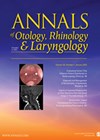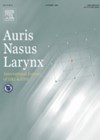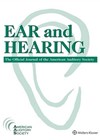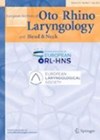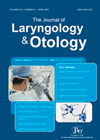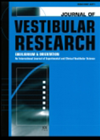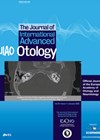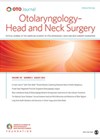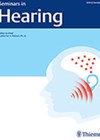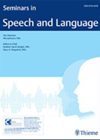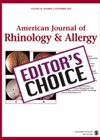
Journal Reviews archive for 2023
Sudden sensorineural hearing loss – who will get better?
Idiopathic sudden sensorineural hearing loss (ISSNHL) is a rare but potentially devastating condition. For patients presenting with this condition, prognosis is of paramount importance. Wu et al begin to address this issue by retrospectively studying 17 potential prognostic factors for...
Effects of diet and exercise on tinnitus
Subjective tinnitus is the perception of sound without any external stimulus. There is no consensus on the aetiology of tinnitus. Obesity is one condition that has been associated with subjective tinnitus. The authors conducted a randomised controlled trial to assess...
Is it beneficial for children to undergo bilateral cochlear implantation before 12 months old?
Universal newborn hearing screening has allowed early diagnosis and, subsequently, early intervention in hearing loss. In 2020 the Food and Drug Administration candidacy criteria for cochlear implants (CI) expanded to include profound sensorineural hearing loss (HL) in children as young...
Preoperative unaided maximum monosyllabic word recognition score as a predictor of CI outcomes
This retrospective study supports early intervention and hearing rehabilitation with hearing amplification for adults. The authors included 103 patients (128 ears), who had undergone cochlear implantation over a seven-year period, in this study. All patients had been assessed for their...
Can ‘cone beam CT scan’ (CBCT) facilitate one-stop rhinology clinic?
Chronic rhinusinusitis can be diagnosed on the basis of its classical symptoms such as nasal obstruction, facial pains, postnasal drip and hyposmia, supported by endoscopic findings such as oedema of middle meatus, mucopus and polyps. However, CT scan findings are...
Relationship between high resolution radiological features of the otic capsuleand audiometric parameters in patients with otscerosis
The audiometric pattern in patients with otosclerosis and outcomes of stapedectomy are variable. Whether this has anything to do with the number of sites affected by otosclerosis in the otic capsule and the disease pattern according to foci location, foci...
Cervicogenic vertigo, a view from the experts
Many readers would be familiar with the term ‘cervicogenic vertigo’ to mean neck-related vertigo or dizziness. In simple terms, this disorder has been defined as dizziness/vertigo caused by neck pain and/or stiffness. By implication, the vertigo/dizziness should resolve by treating...
Hearing aids to improve balance in the elderly?
Patients with hearing loss have been found to be more likely to develop dementia. Hearing loss is also associated with poor balance and higher risk of falls, especially in the elderly population. There is increasing evidence that treating hearing loss...
Systematic review and meta-analysis showing benefit of cochlear implantation in adults with single-sided deafness
This article presents results of a systematic review and meta-analysis to further investigate the impact of unilateral cochlear implantation (CI) in adults with single-sided deafness (SSD) with regards to speech perception in quiet and noise, tinnitus, sound localisation and quality...
What is trendy?
This edition of Seminars in Hearing focused on the results from the MarkeTrak 2022. Now, the relevance to the UK market might be slight limited with some of the data but there are certainly a few interesting nuggets for our...
Foretelling: post-stroke recovery of dysphagia is predicted by cognition
Around two thirds of people in the acute phase of stroke recovery will experience dysphagia. Up to six months following a stroke this may be present in 13-18% of cases. The degree of cognitive impairment seems to be associated with...
A new hope for post-COVID olfactory loss?
Does anyone remember COVID? It seems that what happened between 2019 and 2021 is all but forgotten about. Aside from it cropping up on news feeds occasionally and a few out-of-date automated phone messages that start off with ‘During the...

